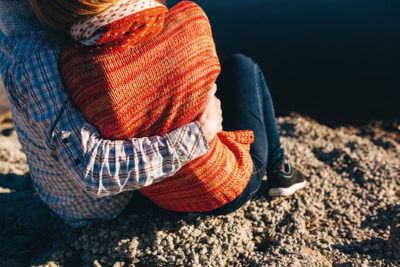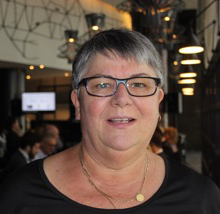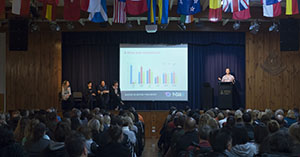
Source: iStock
Parents and carers should be open, honest and supportive during puberty.
Puberty can be a challenging time for children and their parents and carers, who may find it difficult to answer questions about sexuality and relationships.
There are no perfect answers but support and honesty are important as children enter puberty, which can start as young as eight in girls and nine in boys.
Parents, carers and families are the most important source of sexuality and relationship information. They should also admit when they don’t have an answer and offer to find it together.
The internet provides a wealth of starting points. Programs such as WA Health’s Talk Soon. Talk Often offer tips for parents and carers who are unsure about what to do or say.
As the program says, talking a little and often makes a positive difference to a child’s sexual health. The key is to make yourself available, continue to show affection, listen, answer questions honestly and simply, don’t assume heterosexuality and don’t always wait to be asked a question.
For more information visit // healthywa.wa.gov.au/Articles/S_T/Talk-soon-Talk-often
Masturbation
We’ve come a long way since the days when parents used to tell their kids they would go blind if they masturbated. Most parents now realise it is safe and even healthy – as long as it’s done in private.
But masturbation can be a tricky topic to raise with teenagers. How do you start a conversation about something so personal and what do you tell them?
First and foremost, kids need to know there is nothing shameful about masturbation and it won’t affect them physically or mentally. In fact, it is good for their health and allows them to explore their burgeoning sexuality in private.
If you feel embarrassed about discussing masturbation, buy your child a book that covers it and other sexuality issues well – and speaks to them in their language. Don’t forget to tell them you are happy to discuss it with them at any time.
Physical changes for girls*
- Breast growth – the first stage is called “budding”. Sometimes, the breasts are different sizes. This is normal, but girls can speak with a doctor if they are worried.
- Hair growth – hair will start to grow around the pubic area and under the arms, and hair on the legs and arms will darken.
- Vaginal discharge – they may start to get a clear or whitish discharge from the vagina. This is normal.
- Periods – menstrual periods will start. Periods are part of a monthly cycle where the lining of the uterus (womb) thickens as the body gets ready for pregnancy. Once a month, the lining is shed over a few days if a pregnancy has not happened.
- Period pain – they may start to have pain or cramps just before or at the start of their period.
Physical changes for boys*
- Genital growth – their testicles and penis will get bigger. It is normal for one testicle to be bigger than the other. Some boys worry about their penis size, but sexual function, including the ability to have sex and father children, does not depend on penis size.
- Hair growth – body hair starts to grow around the pubic area, legs, under the arms and on the face. It starts off fine and then gets thicker and darker. Some young men keep growing and getting more body hair into their 20s.
- Voice changes – their voice gets deeper.
- Muscle growth
- Wet dreams – they may have wet dreams, where they ejaculate in their sleep. This is a normal part of growing up.
- Erections – sometimes erections happen when they get nervous or excited, or for no reason at all, which can make them feel embarrassed. Other people will not usually notice them and they will go away after a few minutes.
- Breast changes – they may get some breast growth and tenderness. This is a normal response to the changing hormones in their body and will eventually go away.
Emotional changes for girls and boys*
- Coping with a changing body – young people have to deal with a lot of physical changes that happen around the same time. They now have a new body shape and may start to feel self-conscious about how they look.
- Mood swings.
- Physical growth and other changes can make a young person feel full of energy one moment and tired the next.
- The way young people think changes around puberty as they develop their own identity as an individual and as part of a family. They are starting to figure out their own standards and ideals, form their own ideas, morals and values and rely less on their parents.
** Better Health Channel material is copyright © 2016. State of Victoria. Reproduced from the Better Health Channel
(www.betterhealth.vic.gov.au) at no cost. The information published here was accurate at the time of publication and is not intended to take the place of medical advice. www.betterhealth.vic.gov.au/health/healthyliving/contraception-choices



